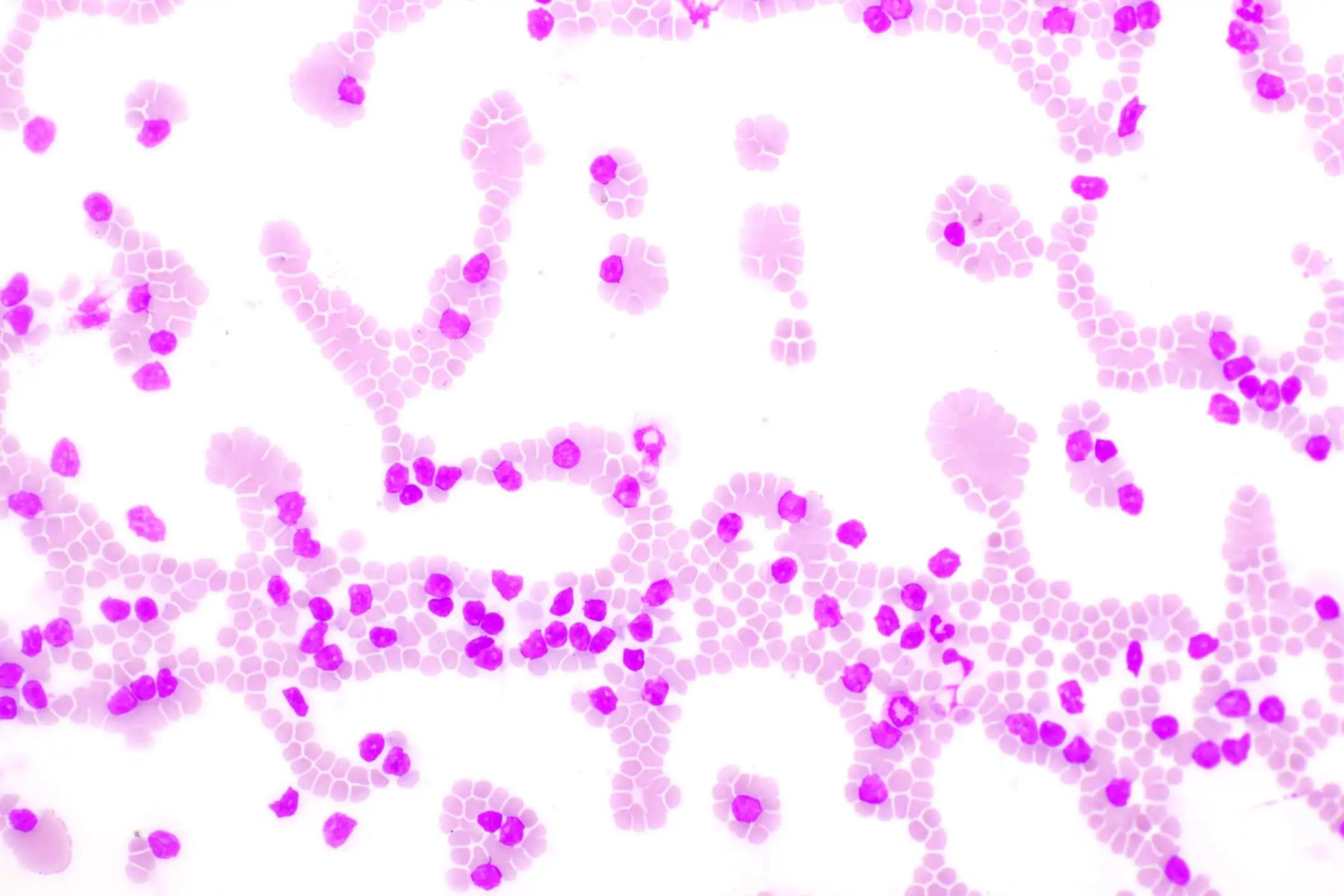KEY TAKEAWAYS
- The CLL13/GAIA trial is a phase 3 clinical trial that compared time-limited venetoclax-based regimens to chemoimmunotherapy (CIT) to treat treatment-naïve patients with CLL lacking del(17p) or TP53 mutations.
- At enrolment, a variety of genomic aberrations were evaluated, including del(11q), +12, mono-allelic del(13q) and normal karyotype, as well as IGHV mutation status and mutations in genes such as TP53, NOTCH1, SF3B1, MYD88, KRAS, NRAS, BRAF, EGR2, NFKBIE, RPS15, and BIRC3.
- In the pooled GVe/RVe/GIVe, undetectable minimal residual disease (MRD) was not associated with any genetic subgroup; however, the single-arm analysis showed an association between NOTCH1 mutation and GVe, as well as +12 cases with RVe. 4. U-IGHV and del(11q) were associated with a significantly lower uMRD rate with CIT, while mutated MYD88 was associated with a higher uMRD rate.
The role of genomic aberrations, IGHV mutation status, and recurrent mutations in genes such as TP53 as prognostic factors in chemoimmunotherapy (CIT) has been well established. However, the effect of these factors in the context of venetoclax-based therapy, such as Rituximab (RVe), Obinutuzumab (GVe) and Obinutuzumab and Ibrutinib (GIVe) has not been as thoroughly explored. The Phase 3 GAIA/CLL13 trial sought to compare the efficacy of these three time-limited venetoclax-based combinations against CIT in treatment-naïve patients with CLL without del(17p) or TP53 mutations. Genomic aberrations were assessed at enrolment by FISH, while IGHV was determined by sequencing with a threshold of 98% homology. Mutations in TP53, NOTCH1, SF3B1, MYD88, KRAS, NRAS, BRAF, EGR2, NFKBIE, RPS15, XPO1 and BIRC3 were identified via amplicon-based targeted NGS.
The incidences of genomic aberrations based on the hierarchical model were del(11q) 17.5%, +12 16.2%, mono-allelic del(13q) 44.6% and normal karyotype 21.7%. A majority of patients (55.9%) were found to have unmutated IGHV (U-IGHV), while the remaining (41.0%) had mutated IGHV (M-IGHV). The incidence of gene mutations included SF3B1 22.6%, NOTCH1 20.5%, NFKBIE 13.6%, BIRC3 11.8%, BRAF/KRAS together 9.6%, XPO1 7.9%, EGR2 5.6%, RPS15 5.5% and MYD88 4.2%. Minor mutations with a variant allele fraction (VAF) of 1.5% to 10% were frequent in BIRC3 and NFKBIE. In terms of PFS, for CIT U-IGHV, del(11q) and mutated NOTCH1 with VAF>10% were associated with shorter PFS in univariate analysis.
For the combined RVe/GVe/GIVe group U-IGHV, NOTCH1 and BRAF/RAS mutations were associated with significantly shorter PFS and del(13q) with longer PFS. The single-arm analysis identified mutated NOTCH1, BIRC3, BRAF/KRAS/NRAS, NFKBIE, del(13q) and U-IGHV as prognostic factors for PFS. Subset2 was not associated with shorter PFS, even among M-IGHV patients. In the multivariable analysis, treatment with GVe and GIVe were identified as favourable independent factors, while U-IGHV and mutated NOTCH1 were confirmed as independent prognostic factors.
For the CIT group, del(11q), U-IGHV and mutated NOTCH1 >10% VAF were found to be independent adverse genetic risk factors. Mutated BRAF/RAS, U-IGHV and mutated NOTCH1 were confirmed as independent adverse prognostic factors for the combined RV/GVe/GIVe group. These results suggest that gene mutations are associated with a lower rate of uMRD and shorter PFS after CIT or venetoclax-based therapy. Furthermore, IGHV and NOTCH1 mutations retain their prognostic role with both treatment types. Mutations in the RAF/RAS pathway (9.6% overall) were associated with shorter PFS with venetoclax-based therapy, while with CIT, an impact on outcome is not as apparent.
Source:https://ash.confex.com/ash/2022/webprogram/Paper163775.html
Clinical Trial:https://clinicaltrials.gov/ct2/show/NCT02500407
Eugen Tausch, MD1, Christof Schneider, MD1*, Moritz Furstenau, MD2, Sandra Robrecht, PhD3*, Deyan Yordanov Yosifov, PhD1,4*, Daniel Mertens, PhD1,5*, Michael Gregor, MD6*, Patrick Thornton, MB, FRCPath7*, Philipp B. Staber, MD, PhD8, Tamar Tadmor, MD9*, Mark-David Levin10, Caspar da Cunha-Bang11*, Christian Bjørn Poulsen, MD12*, Thomas Illmer, MD13*, Björn Schöttker14*, Ann Janssens, MD, PhD15*, Ilse Christiansen16*, Thomas Noesslinger, MD17, Michael Baumann, MD18*, Clemens-Martin Wendtner19, Eric Eldering, PhD20*, Karl-Anton Kreuzer, MD2*, Matthias Ritgen, MD21*, Anna-Maria Fink, MD2*, Kirsten Fischer, MD2*, Arnon P. Kater, MD, PhD22, Carsten Utoft Niemann, MD, PhD11, Michael Hallek, MD23, Barbara Eichhorst, MD2 and Stephan Stilgenbauer, MD1



